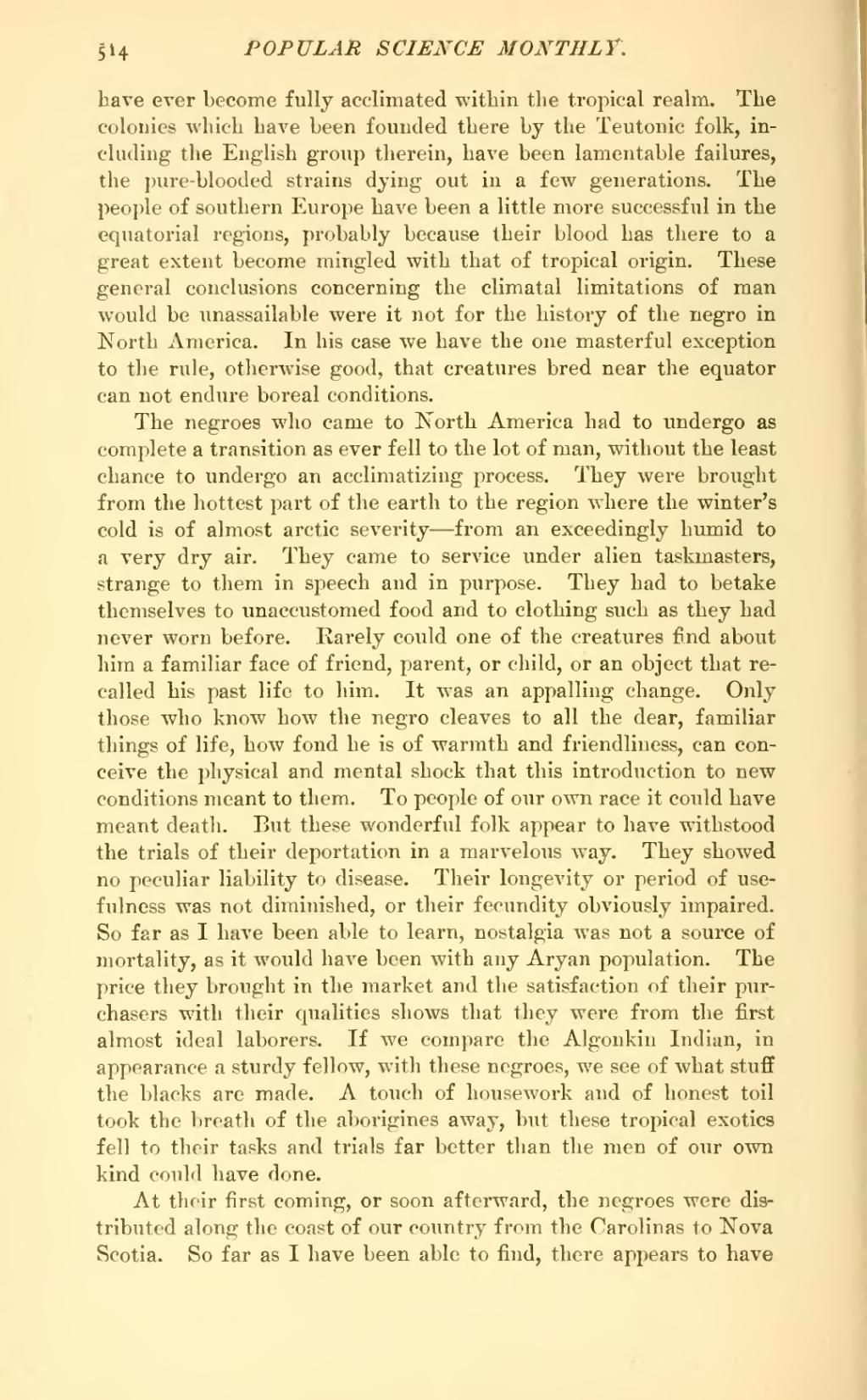have ever become fully acclimated within the tropical realm. The colonies which have been founded there by the Teutonic folk, including the English group therein, have been lamentable failures, the pure-blooded strains dying out in a few generations. The people of southern Europe have been a little more successful in the equatorial regions, probably because their blood has there to a great extent become mingled with that of tropical origin. These general conclusions concerning the climatal limitations of man would be unassailable were it not for the history of the negro in North America. In his case we have the one masterful exception to the rule, otherwise good, that creatures bred near the equator can not endure boreal conditions.
The negroes who came to North America had to undergo as complete a transition as ever fell to the lot of man, without the least chance to undergo an acclimatizing process. They were brought from the hottest part of the earth to the region where the winter's cold is of almost arctic severity—from an exceedingly humid to a very dry air. They came to service under alien taskmasters, strange to them in speech and in purpose. They had to betake themselves to unaccustomed food and to clothing such as they had never worn before. Rarely could one of the creatures find about him a familiar face of friend, parent, or child, or an object that recalled his past life to him. It was an appalling change. Only those who know how the negro cleaves to all the dear, familiar things of life, how fond he is of warmth and friiendliness, can conceive the physical and mental shock that this introduction to new conditions meant to them. To people of our own race it could have meant death. But these wonderful folk appear to have withstood the trials of their deportation in a marvelous way. They showed no peculiar liability to disease. Their longevity or period of usefulness was not diminished, or their fecundity obviously impaired. So far as I have been able to learn, nostalgia was not a source of mortality, as it would have been with any Aryan population. The price they brought in the market and the satisfaction of their purchasers with their qualities shows that they were from the first almost ideal laborers. If we compare the Algonkin Indian, in appearance a sturdy fellow, with these negroes, we see of what stuff the blacks are made. A touch of housework and of honest toil took the breath of the aborigines away, but these tropical exotics fell to their tasks and trials far better than the men of our own kind could have done.
At their first coming, or soon afterward, the negroes were distributed along the coast of our country from the Carolinas to Nova Scotia. So far as I have been able to find, there appears to have
